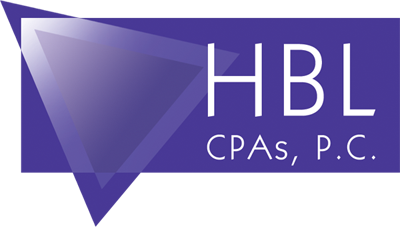8 Tax Strategies for Construction Companies
Running a successful construction business means juggling budgets, timelines, compliance requirements, and more. But when it comes to financial efficiency, tax strategy plays a critical role. By identifying the right deductions and optimizing your tax planning, construction companies can reduce their liabilities and strengthen their bottom line. At HBL CPAs, our dedicated team of construction accounting professionals understands the complexities of the industry. Here are some tax strategies that can make a difference for your business.
1. Take Full Advantage of the Section 179 Deduction
Construction companies invest heavily in equipment and machinery. Section 179 of the IRS tax code allows businesses to deduct the full purchase price of qualifying equipment bought or financed during the tax year. This immediate expensing can significantly reduce your taxable income.
Make sure your purchases meet eligibility requirements and consult with a professional to time your equipment acquisitions strategically.
2. Capitalize on the Bonus Depreciation Rules
In addition to Section 179, bonus depreciation offers another opportunity to write off 100% of qualified asset costs in the year they’re placed in service. For many construction firms, combining Section 179 with bonus depreciation can lead to substantial tax savings.
Work with an experienced tax advisor to understand how these rules apply to your unique asset mix and project timelines.
3. Use the Completed Contract Method or Percentage-of-Completion Wisely
Choosing the right accounting method for long-term contracts can affect your tax liability. The Completed Contract Method (CCM) allows you to defer tax liability until a project is completed, which can be advantageous in years of heavy investment. On the other hand, the Percentage-of-Completion Method (PCM) spreads revenue and costs over the life of the project. Choosing the best option depends on your contract types and cash flow.
4. Don’t Overlook the R&E Tax Credit
Construction companies involved in developing new techniques, materials, or processes may qualify for the Research and Experimental (R&E) Tax Credit. This credit can offset federal income tax liability and, in some cases, payroll tax. We can help identify whether your projects qualify. Reach out to our tax services team to learn more.
5. Track and Deduct Business Vehicle Expenses
If your business uses vehicles for transporting equipment, visiting job sites, or hauling materials, those vehicle-related expenses may be deductible. From fuel and maintenance to depreciation and lease payments, maintaining detailed records is essential.
Consider using a mileage tracking app and maintaining separate logs for personal vs. business use.
6. Plan Ahead with Quarterly Estimated Taxes
Cash flow is vital for construction companies. Planning for quarterly estimated tax payments helps avoid penalties and surprises. Accurate forecasting based on current contracts and expected income is key.
Our outsourced CFO services can support you with better financial planning and cash flow projections.
7. Collaborate with a Construction-Focused CPA Firm
Every deduction or strategy mentioned above requires careful documentation and planning. Partnering with a CPA firm that knows the construction industry ensures you’re not leaving money on the table.
HBL CPAs has decades of experience supporting construction businesses across the Southwest. Visit our construction accounting page or contact us to schedule a consultation.
8. Big Beautiful Update
With the signing of ‘The One, Big, Beautiful Bill’, there are a few updates that affect construction contractors:
Research and Experimental Credits:
- Under the previously enacted legislation (2017 TCJA), research and experimental costs were required to be amortized over 5 years, meaning the credits had to be spread out over 5 year’s tax returns.. Under the new legislation, such costs are allowed to be taken as a credit in full during the tax year that the costs are incurred for domestic purchases.
- The R&E tax credit is in addition to Section 174A expense, meaning a single qualified purchase could entitle the business to both a deductible expense and the tax credit.
- If R&E credits relate to investment outside the U.S., a taxpayer may still take advantage of the credits, however these remain subject to amortization over five years.
- The legislation makes the change retroactive to tax years beginning January 1, 2022. This means that, although the BBB is not in effect until tax years ending December 31, 2026 or later, this can be utilized for 2025, and even for 2024 if a tax return has not yet been filed.
- Small businesses whose gross receipts are under $5 million may also use these credits to offset payroll taxes, should this be more beneficial than being applied to income taxes.
Bonus Depreciation (Section 168)
- Section 168 bonus depreciation is again set at 100% of qualified property costs. The previously applicable legislation began phasing out the deductibility in 2023, reducing it for that tax year to 80%, down to 60% for 2024 and currently 40% in 2025. However, under the BBB, qualified costs purchased after January 19, 2025 are again eligible for the 100% bonus depreciation. Purchases for the period January 1 through January 18 remain at the 40% allowability.
- In order to qualify for 100% bonus depreciation, the property must be placed into service before January 1, 2030.
Stay Proactive, Stay Compliant
With the right strategies and expert guidance, your construction company can reduce liabilities and reinvest more into growth. Ready to optimize your tax strategy? Contact HBL CPAs today to get started.


